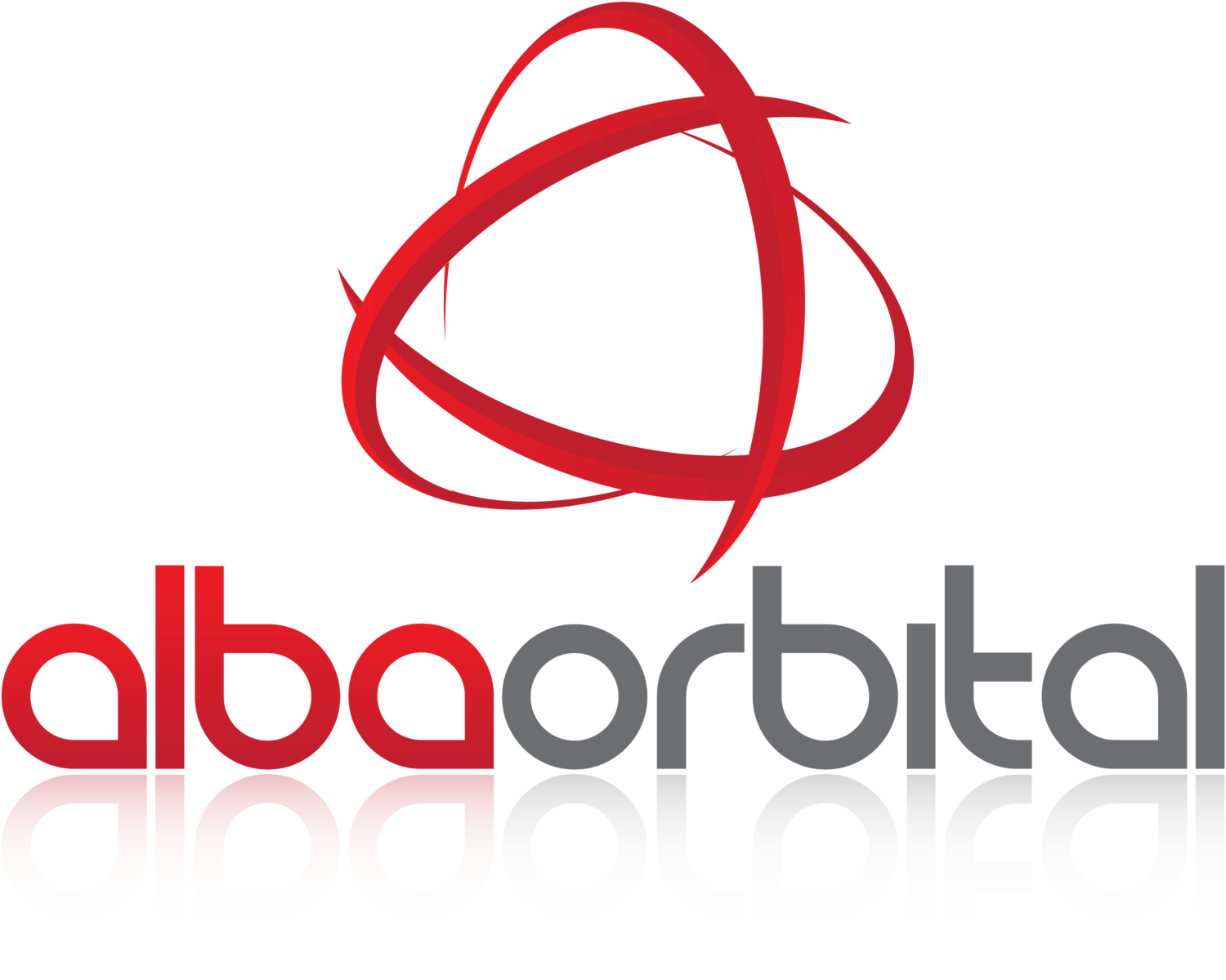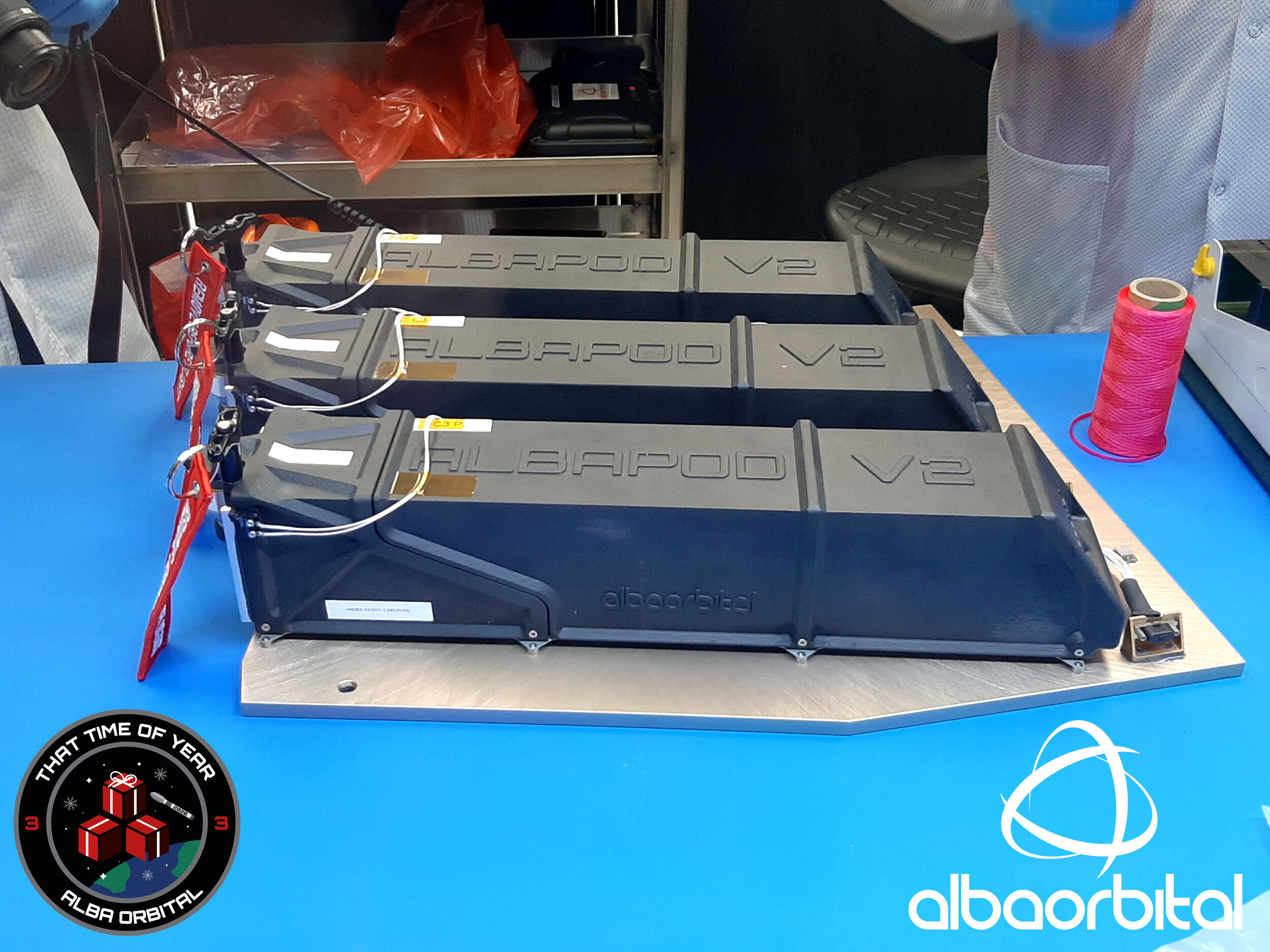Alba Orbital announces successful integration of 9 PocketQube satellites ahead of Alba Cluster 3 SpaceX Launch in Q2 2021.
Alba Orbital Ltd today announced the successful integration of nine PocketQube satellites ahead of their upcoming Alba Cluster 3 mission, ‘That time of year’, which will be the largest PocketQube launch in history to date. Using the company’s AlbaPod v2, the world’s only space proven PocketQube deployer, Alba Orbital will take customer satellites to orbit on a SpaceX Falcon 9 launch vehicle in Q2 2021 as part of a rideshare agreement.
PocketQubes are tiny satellites that are small enough to fit in your pocket. They are composed of 5cm cubes that can be stacked to make larger variants, which are referred to as ‘p’, for example a 1p satellite measures at 5x5x5cm and 2p’s are 5x5x10cm. These satellites are driving the revolution in democratising access to space, as PocketQubes remove economic barriers during both development and launch.
EASAT-2 1.5p - One of two twin PocketQube satellites from AMSAT-EA manifested to launch on Alba Cluster 3 in Q2 2021.
“When we started thinking about building a satellite, we first saw the Cubesat standard and thought that this was the only thing available to small organisations like ours, but this was too expensive - over 100,000 Euros! When we heard about PocketQubes we were really excited because they were cheaper to develop and to put in space. Until now, only major organisations, big companies, and some universities could raise the funds to fly satellites
”
The Alba Cluster 3 mission is named ‘That time of year’ in homage to the first back-to-back PocketQube launch, building on the company’s successful Alba Cluster 2 launch in 2019, which deployed six PocketQubes into orbit including two of Alba Orbital’s Unicorn-2 pico-satellites.
PocketQube satellites from all over the world are getting to space with Alba Orbital for Alba Cluster 3.The PocketQubes confirmed to launch on Alba Cluster 3 are:
DelfiPQ: A 3p PocketQube developed by TU Delft (Netherlands). DelfiPQ is the start of a iteratively developed line of PocketQubes with the aim to enable new and unforeseen missions with distributed networks of PocketQubes. Delfi-PQ is testing a LOFAR payload and a laser retro reflector.
Grizu-263a: A 1p PocketQube developed by Zonguldak Bülent Ecevit University (Turkey). Grizu-263a carries an inertial measurement sensor and a passive magnetic control subsystem (PMACS).
TRSI-2: A 1p PocketQube developed by TRSI (Germany).
HADES & EASAT-2: Twin 1.5p PocketQubes developed by AMSAT-EA (Spain). EASAT-2 was developed in collaboration with the European University of Madrid and its mission is to be a satellite for communication between radio amateurs via a 145/435 MHz transponder. It also carries a basalt from Lanzarote, similar to lunar ones, provided by the CSIC research group on meteorites and planetary geosciences.
HADES is also an FM/FSK voice and data repeater for amateur use and carries a SSTV camera module developed and manufactured in the Department of Radioelectronics of the Brno University of Technology in the Czech Republic.
SATTLA-2: A 2p PocketQube developed by Ariel University (Israel), which will utilize WiFi cards for extreme long-range link applicable to transmit video for over 600 km in LOS conditions.
Unicorn-1, Unicorn-2A & Unicorn-2D: Unicorn-1 is a 2p built in partnership with the European Space Agency (ESA). Unicorn-2A and 2D are earth imaging 3p PocketQubes also developed by Alba Orbital UG (Germany).
The cluster includes Turkey’s first pico-satellite, Grizu-263a which was designed by a team of engineering students from Zonguldak Bülent Ecevit University and named in honour of the 1992 Kozlu coal mine disaster. The Grizu team are joined by other prestigious universities on the Alba Cluster 3 lineup such as TU Delft and Ariel University. ACME AtronOmatic who flew TRSI-1 on Alba Cluster 2, also joins the Alba Cluster 3 roster as Alba Orbital’s first returning launch customer.
Speaking on why TU Delft signed up to launch with Alba Orbital, Delfi-PQ team member, M. Ş. (Mehmet) Uludağ said:
“‘Alba Orbital are one of the first and only companies to focus solely on PocketQubes, so it is nice when a company has a focus as you can communicate with them easily and they can really understand your problems. Alba Orbital are also the only company right now who have a qualified PocketQube Deployer and this gives you a certain confidence that your satellite will be deployed without any problems’’”
Alba Orbital Cluster 3 is manifested on a SpaceX Falcon 9 launch vehicle and is scheduled for a Q2 2021 launch date with a target SSO (Polar) Orbit. Speaking on the success of Alba’s PocketQube launch business, Founder and CEO, Tom Walkinshaw added:
‘This a huge milestone for Alba and the PocketQube community. Demonstrating annual, reliable and affordable flights for the PocketQube standard is what is required for more teams to get involved in PQs. This flight nearly doubles the number of PocketQubes ever flown to orbit (10 to 19), with Alba orbiting 15 of those satellites.’
Limited slots for Cluster 4 (Q4 2021) are still available, with prices starting from 25k euro for a 1p. Alba Orbital provides the lowest price to launch a satellite to orbit on a reliable flight proven launch system. More information can be found at www.albaorbital.com/launch



